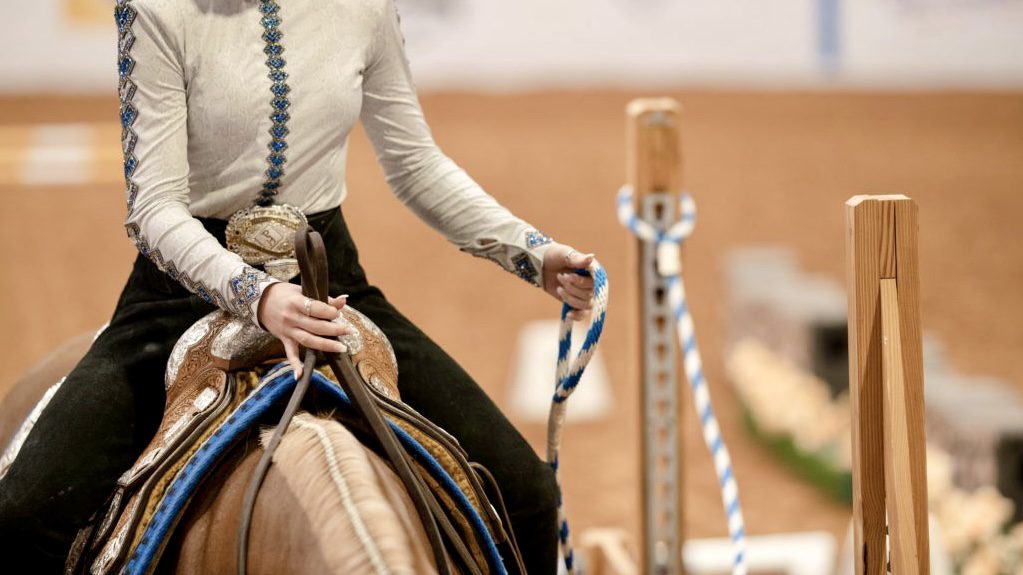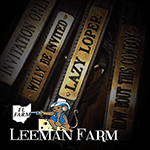Mistakes happen. Every day, someone somewhere sends the wrong text, misses their appointment, or attaches the wrong file to an email. When we show horses, we might miss a lead, break in front of the judge, or forget our pattern. No matter what the mistake is, the most important part is how you handle it.
Many times, exhibitors jump to blame anyone but themselves for their mistakes in the show pen. GoHorseShow had the opportunity to sit down and talk to AQHA judge and professional horsewoman Sandy Jirkovsky about why blaming others for your show ring failures is a self-fulfilling prophecy.
Jirkovsky, owner of J/S Training, said it is common for exhibitors to place the blame for their mistakes on someone else because it is easier than taking responsibility.
“I think that a lot of people don’t want to accept responsibility when something doesn’t go their way, and it’s something they didn’t prepare for enough,” she said. “They want to blame others because it’s easier on their egos.”

Usually, Jirkovsky said, exhibitors are quick to blame either their horse, their trainer, or the judge when things go awry in the arena. However, she pointed out that this is a flawed school of thought among exhibitors. “It’s a learning experience – everyone has been there; you have to work through it to get to the next level. Horse showing as a sport/hobby makes you mature and more responsible for your actions.”
No matter how finished or proven the horse, they can’t compete without a rider to pilot them. Horses aren’t machines; they need their rider’s guidance to complete any maneuver successfully. Therefore, if the horse appears to make a mistake, it’s up to the rider to work to correct it on their behalf going forward.
Jirkovsy says that along with the horse and the trainer, many exhibitors blame the judges for their failures or low placings in the arena.
“The biggest misconception is that ‘this judge just doesn’t like me,’” she said. “They think we’re out there to be negative, but judges are really out there being your biggest supporters.”
Judges always hope that you will exhibit your best performance when you enter the show pen, Jirkovsky explained. When you have a great go, they celebrate alongside you. When you make a mistake, they are often just as disappointed for you as you are for yourself. They always want to see you do your very best. “It’s nothing personal, whether it’s my best friend or a total stranger, I’m rooting for every one of them.”
But, why does it matter if you blame someone else for your errors in the arena? Well, because it becomes an endless cycle. Jirkovsky says that having a negative mindset and avoiding taking responsibility will only result in continued failures.
“I think when they go in with that mindset, it creates more problems,” Jirkovsky said. “They set themselves up for failure. If they go in with the attitude of ‘I’ve got this,’ they can overcome the bad thing that happened the last time.”
When you refuse to acknowledge that a mistake was caused by something you did while you were showing, you won’t be able to figure out what you did wrong. Whether that means asking for the lead change a stride sooner, changing your approach to the trail obstacle, or memorizing your pattern further in advance, the only one who can truly change the outcome in the show pen is the exhibitor.

Jirkovsky suggested positive alternatives to blaming others for your mistakes. You might try watching videos of your runs with your scoresheet in hand or asking a trainer or judge to explain your scores impartially. But, with any approach to improvement, you have to be open-minded in order for it to truly take effect.
“Get someone totally impartial with a trained eye to watch the video and score sheet with you. Be open-minded about it, and learn from what those marks are. Score sheets should mirror the run – focus on the maneuver they were poor on and correct it/build it. We’re not making up numbers when we’re judging there,” Sandy says.
She adds, “If it’s a class that doesn’t have a score sheet, then you really have to go with the video and be honest with yourself as you watch that video. Always get an outside opinion. Even if you don’t have a trainer, there’s a lot of us out there that will watch something with you and help you at no cost, just to help the industry.”
Other tips include: Showing is as much mental as it is physical – read as many sports psychology books as possible. The Mind Gym is a book Jirkovsky recommends with good mental exercises before the competition.
Push positive thoughts and think about performing the best mentally as well as physically. “It seems like when you’ve had one bad show, you can think that the rest are going to be. You need someone to get in there and help beat that mindset. Our coaches need to do more than just make our riders. We need to help their mindsets, too.”









